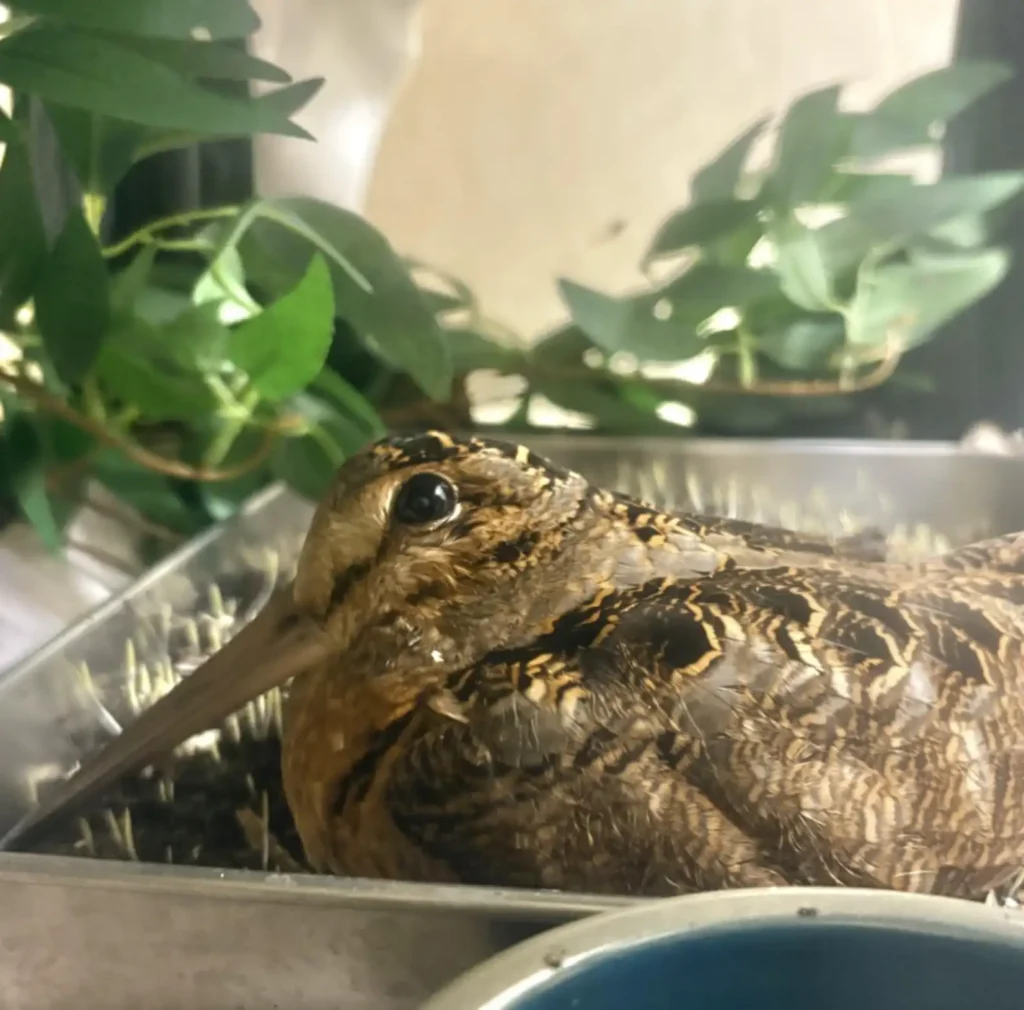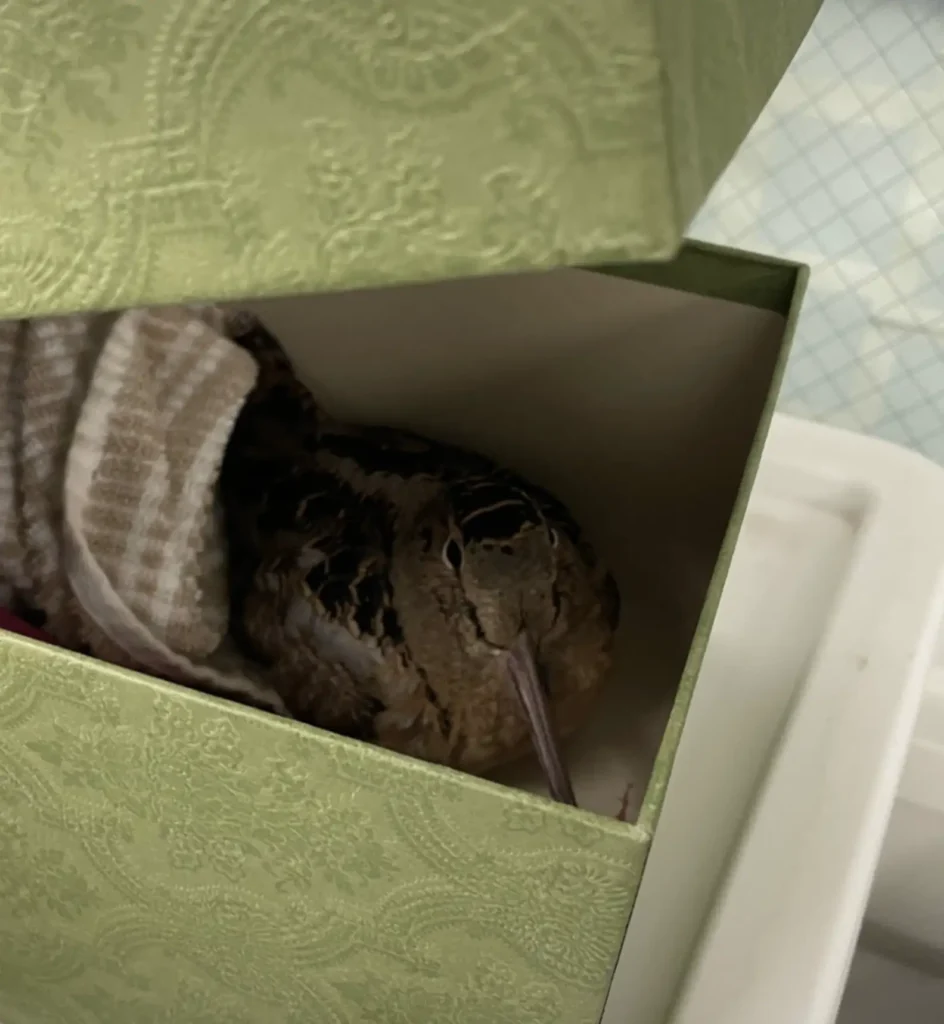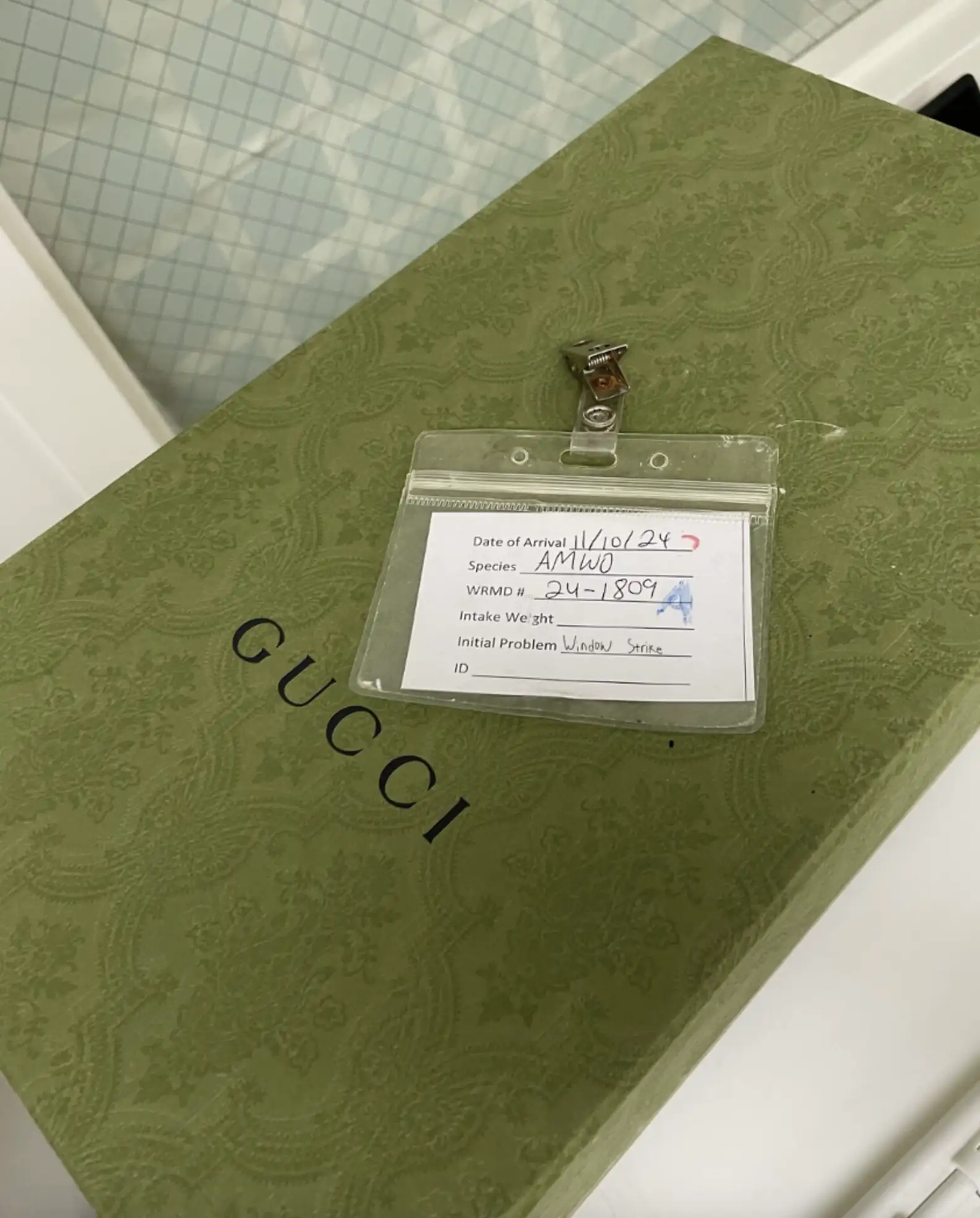“Everyone was surprised …”
In downtown Washington, D.C., a small, injured bird lay motionless on the sidewalk, unable to move. Spotted by a compassionate passerby, the bird’s luck changed when the resident decided to help, carefully scooping him up and taking him to City Wildlife, a local animal rehabilitation center.

But what truly caught the attention of the rescue staff was the bird’s unusual mode of transport — an elegant green Gucci box.
“Our staff members found it very amusing!” said Chris-Ann Burton, communications and administrative specialist at City Wildlife. “Most patients arrive in something like a plain cardboard box, paper bag, or even bare hands. Seeing such a stylish container was a delightful surprise.”

The bird, identified as a woodcock, was fittingly named Gucci by the rescue team. Surprisingly, his posh ride proved to be highly practical.
“[I]t’s actually a rather safe option!” City Wildlife shared on Facebook. The sturdy box limited the bird’s stress by blocking his view of the outside world. It was also the perfect size, well-ventilated, and smooth enough to protect his delicate feathers.
Under the care of City Wildlife’s veterinary team, Gucci underwent a thorough examination. He was found to have a concussion, fractures in both his upper and lower beak, and ulcers in his eyes. Despite his injuries, Gucci responded well to treatment. A flight test later revealed his resilience as he soared effortlessly. After a week of recovery, Gucci was ready to be released.
At sunset, a rescuer returned him to the wild, releasing him in a wooded area near a grassy field. Watching him take flight, the volunteer felt a bittersweet mix of joy and concern.
Woodcocks are classified as a species of greatest conservation concern in Washington, D.C., making Gucci’s release even more poignant. “She said she shed a tear!” Burton shared. “Seeing wildlife regain freedom after such a fight for survival is indescribable, but it also comes with a tinge of fear for their future.”
Gucci’s story highlights the importance of turning to licensed wildlife rehabilitators when encountering injured, orphaned, or sick animals. For this little woodcock, that decision made all the difference, giving him a second chance to thrive in the wild.
